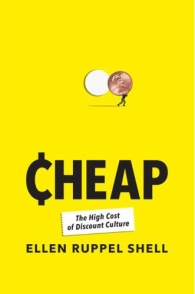I have recently seen two examples of creative ways to get free labor over the internet. I suppose the whole open source movement should be counted in this category, too, but that’s old news. (And there’s probably more to it than I think.) At a workshop two weeks ago, I heard about Fold-It, a “a revolutionary new computer game enabling you to contribute to important scientific research.” Larry Robertson told us about it at Millikin University, in the context of a discussion on the meaning of entrepreneurship. What could be a more creative and low-cost way to get people to think about protein structures?
The other example is not so much about advancing science as about making money. We all know and love those annoying little wavy words we have to decipher to submit web forms. They are referred to as “CAPTCHAs,” which apparently stands for “completely automated public Turing test to tell computers and humans apart.” What you may not know is that you are working for someone, say, Google, when you decipher those words. The New York Times has the full story. reCAPTCHA started as a project of Professor von Ahn at Carnegie Mellon, as their website says. That same site, you may notice, starts with www.google.com, which is because Google bought reCAPTCHA in 2009. Through reCAPTCHA, Google is enlisting you and me to decipher words in scanned documents that the image-to-text software had trouble with. Hey, if I can help digitize old books, I’m all for that. I hope I don’t have to pay a ton to read those same words in the right order. I can’t wait to hear more about the next scheme of Professor von Ahn.


 I recently picked up again one of my favorite books, How to be an Alien by
I recently picked up again one of my favorite books, How to be an Alien by 








